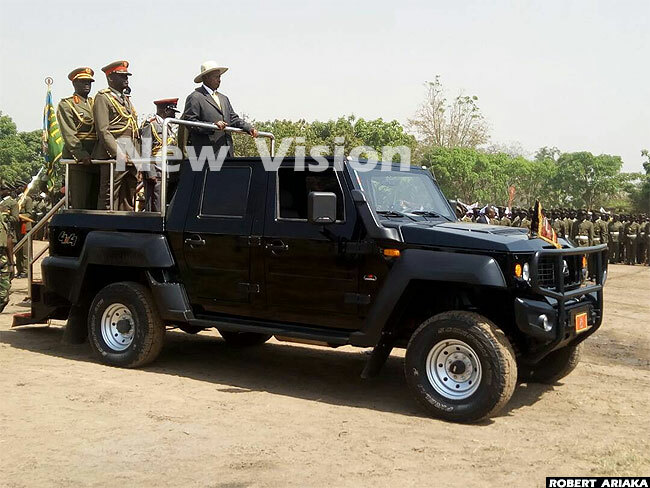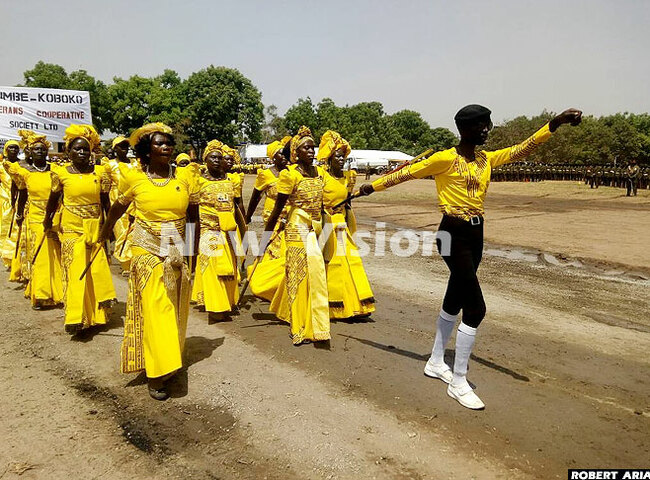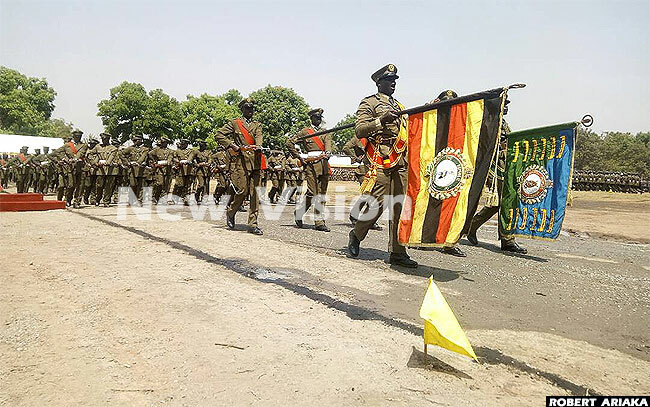Museveni urges Ugandans on discipline
"Indiscipline will scare away people. The Police must insist on the proper road code," President Museveni says during the 32nd anniversary of the NRM Liberation.
NRM LIBERATION DAY
ARUA - President Yoweri Museveni has appealed to Ugandans to "learn discipline", saying the recklessness on roads is hurting the tourism sector.
He said bodaboda and taxi drivers using the roads recklessly "are going to undermine our efforts to bring more people to Uganda".
"Indiscipline will scare away people. The Police must insist on the proper road code," Museveni told a large crowd at the Boma grounds in Arua town during the NRM Liberation Day celebrations on Friday.
"Do not overtake when you are not supposed to overtake and do not drive on the pavement because it for pedestrians. I have heard investors complaining about drivers in Uganda."
The President said one of the pillars his government is using to accelerate socio-economic transformation is promoting social discipline. "Uganda will develop faster because we now have electricity - unlike in the past. I appeal to Ugandans to learn discipline," he said.
"We are going to eliminate the few criminals that are there by improving the infrastructre," Museveni said on a day marking 32 years since the National Resistance Army (NRA) that he led came to power.
Ontop of Uganda's already established record of being welcoming, Museveni said social discpline will "enhance our reputation internationally".
"Tourists bring in a lot of money. In 1986, tourists were zero. You are now getting 1.5 million tourists - not very high, but it better. They are bringing in $1.5b. They will bring in more if we are disciplined in the town," the President added.
On a fairly warm day in Arua, about a seven-hour drive from the capital Kampala, guests in various capacities had by 8:00am local time started making their way to Boma grounds for the event.
Among the high-profile people that attended was Vice-President Edward Kiwanuka Ssekandi, Speaker of Parliament Rebecca Kadaga and Prime Minister Dr Ruhakana Rugunda.
Ministers, Members of Parliament (Uganda and East Africa), religious leaders, foreign dignitaries, students and others were also there.

Hundreds of Ugandans were awarded medals of various categories for their role played in the liberation and transformation of the country.
The medal including the Rwenzori Star, Masaba Star, Luwero Triangle Medal, Police Medal and Golden Jubilee Medal.
'I don't need a lecture on democracy'
Meanwhile, President Museveni, who had arrived at the venue shortly before noon, later made it clear that he does not need any lecture on democracy because "very few people are qualified" to do so.
Speaking about the country's growth in democracy over time, Museveni said Uganda "is one of the most democratic countries in the world" and he is "not about to receive a lecture about democracy from anyone".
"We brought back representative democracy that had been taken away and we expanded the spectrum," Museveni added, saying groups such as the youth, disabled, workers and soldiers, were considered.
Let us make our items - Museveni
The President was also critical of Ugandans' dependence on imports. He said the Government plans to support youths so they in turn create jobs for others.
Youths without land to engage in agriculture will be given a hand in other money-making sectors, such as information and communications technology (ICT).
But to thrive, the young people "need to be disciplined and stop taking alcohol and drugs", because, according to Museveni, "those misbehaviours do not assist them".

Museveni said there is so much wealth in Uganda that locals can afford to import even items that they should be making themselves. "We are creating jobs for the children of other people," he said.
Instead, "make mobile phones, TVs, electricity transformers, electricity metres, shoes and textiles here," the President, who revealed that he wears shirts made by Nytil, urged.
Had it been not for the nature of the function that he had to preside over, Museveni pointed out that he would have done away with suits. "I don't see why I should make myself a market of a foreign product. I want to throw these suits. I only put on mine because of the occasion."
The President had at the start of his address underlined the factors behind the NRM's success. One of them is ideology.
"We were able to diagnose the problem of society and lay out prescription. We advocate for patriotism as opposed to sectarianism. Don't think about your religion, tribe or whether you are a man or woman. Think about yourself as a patriotic."
He said another key ingredient of their success was pan-Africanism.
"One element of patriotism is, we work for the prosperity of the society through production of wealth. The vision of the NRM is to transform socirty from a peasant one to a middle-class society. The middle-class is growing, and so is the working class," Museveni told his large audience.
"We want peasants to transform to commercial farmers. I will come here (West Nile) and ask for land so that I show you how you can become a commercial farmer on a small scale."

'Middle class important'
In his delivery, the President said his government used free education and liberation to stimulate socio-economic development.
On liberalisation, he said: "We removed the Government from doing business so that we freed that space for the private sector. We removed Government from hotels, such as Sheraton, Serena and White Rhino here."
According to Museveni, the middle class is important for both the economy and politics because "they are less parochial" than other people because they are only interested in business.
He also said infrastructure is one of the factors that helped the private sector thrive. "We have been working consciously to improve infrastructure."
But while roads are crucial, railway and water, according to the President, are better, as their costs are lower than the former's.
"We are going to modernise the railway - linking to Kenya, South Sudan and Congo. We are also going to use Lake Victoria and River Nile as they make water transport cheaper."